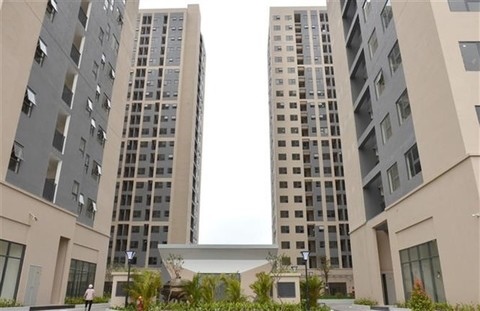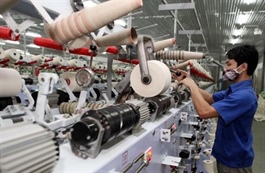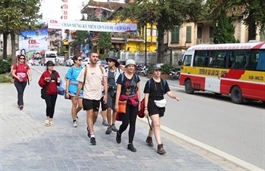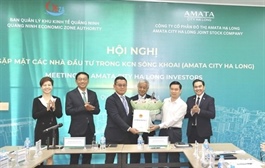VN's economy forecast to grow by 5.5 per cent in 2024
VN's economy forecast to grow by 5.5 per cent in 2024
Việt Nam's economy can grow by as much as 5.5 per cent in 2024 and increase to 6 per cent in 2025, according to a report from the World Bank (WB) released yesterday.

A housing project in Liên Chiểu District, Đà Nẵng City. — VNA/VNS Photo |
After experiencing downturns in 2023, Việt Nam's economy has been showing signs of recovery during the first quarter of 2024.
According to the report, the Southeast Asian economy has enjoyed stronger exports as domestic consumption and private investment increased gradually during the period with export prices expected to rise by as much as 3.5 per cent this year and in 2025 as global demand recovers. Meanwhile, the country's property sector has been forecast to make a comeback in the remainder of the year, alongside confidence among investors and consumers, leading to a potential 5.5 per cent increase in private investment and 5 per cent in consumption in 2024.
The report emphasised the importance of continuing to support the economy through fiscal policies, aimed at strengthening economic recovery, by accelerating the implementation of infrastructure investment projects funded by public resources, for example. The report said such projects can further stimulate the economy, with the potential for GDP growth of 0.1 percentage points for each percentage point increase in public investment as a share of GDP. Regarding monetary policy, WB said additional interest rate cuts were limited due to the interest rate differences between the domestic and international markets.
With strong public spending, budget deficits were projected to increase to 1.6 per cent of GDP in 2024 before decreasing to 1.1 per cent in 2025, in line with the government's fiscal strategy for the 2021-30 period. As ensuring financial stability remains a top priority, the country should focus on managing the increasing risks associated with rising non-performing loans including those stemming from declining property values in the real estate market. With the capital buffers of commercial banks remaining relatively thin, further declines in the property market could further reduce their capital.
Sebastian Eckardt, World Bank Practice Manager for Macroeconomics, Trade and Investment in the East Asia and Pacific Region said investing in public infrastructure projects often creates long-term benefits alongside immediate economic stimulation.
"Strengthening public investment management will also address critical infrastructure bottlenecks in energy, transportation and logistics, which are the foundation for Việt Nam's long-term economic growth," he said.
The report highlighted the need for a more favourable environment for business operations as structural barriers persist in various sectors, including legal barriers, increasing skills gaps, low technology absorption rates and challenges in accessing financial resources in the early stages.
In order to nurture an innovation culture, experts from the WB made several key recommendations for the country. WB advised Việt Nam to invest additional resources in improving support mechanisms and creating domestic funds to build an ecosystem to help innovative businesses.
In addition, administrative and legal reforms should be sped up to address startups' barriers in accessing funds and facilitating investment activities. Academia and public researchers should be encouraged to contribute to startups through incubators, idea development support, and innovative startup training centres, under a public-private cooperation model.
They said public researchers can greatly contribute to the modernisation of intellectual property frameworks and technology transfer while providing incentives for researchers in the form of potential for commercialisation.



























